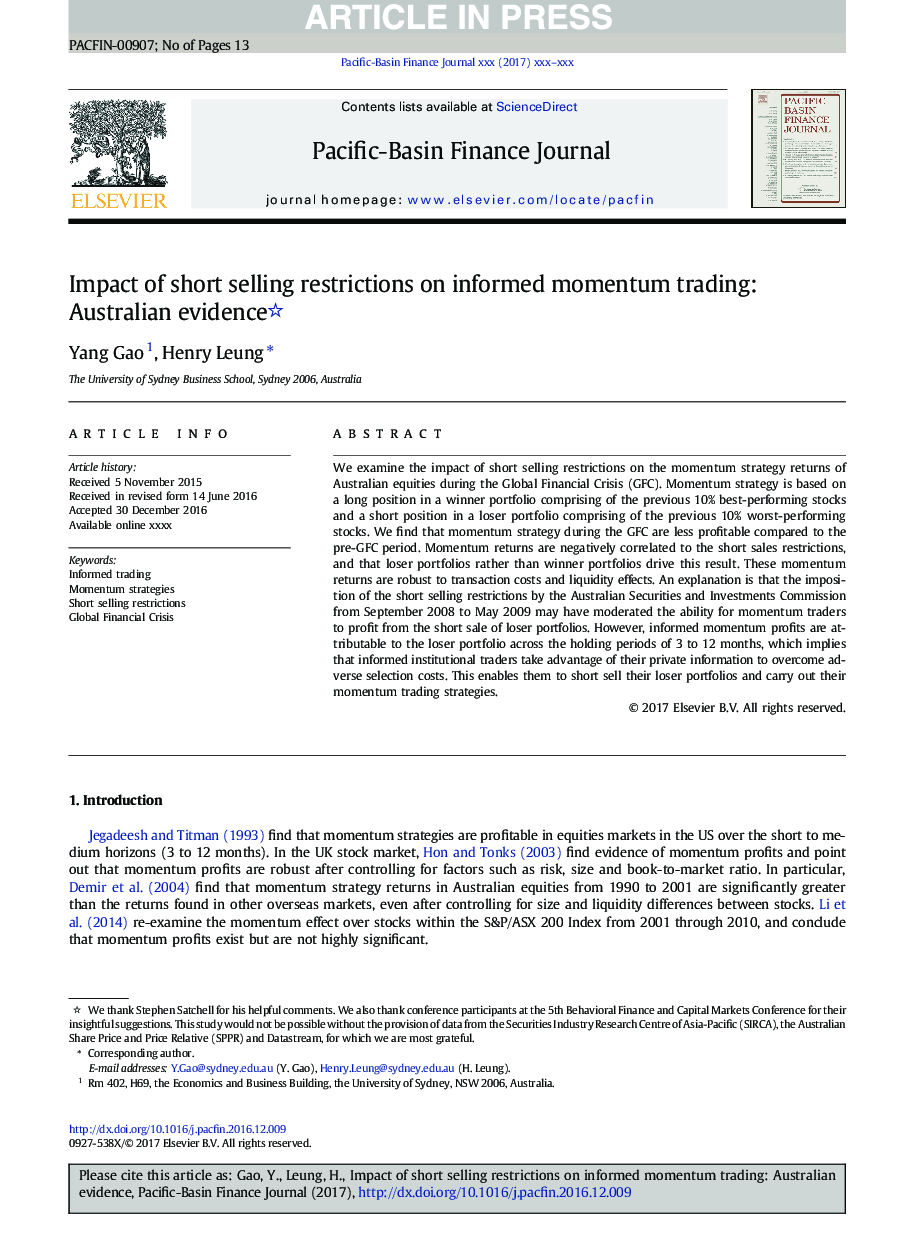| Article ID | Journal | Published Year | Pages | File Type |
|---|---|---|---|---|
| 7374331 | Pacific-Basin Finance Journal | 2017 | 13 Pages |
Abstract
We examine the impact of short selling restrictions on the momentum strategy returns of Australian equities during the Global Financial Crisis (GFC). Momentum strategy is based on a long position in a winner portfolio comprising of the previous 10% best-performing stocks and a short position in a loser portfolio comprising of the previous 10% worst-performing stocks. We find that momentum strategy during the GFC are less profitable compared to the pre-GFC period. Momentum returns are negatively correlated to the short sales restrictions, and that loser portfolios rather than winner portfolios drive this result. These momentum returns are robust to transaction costs and liquidity effects. An explanation is that the imposition of the short selling restrictions by the Australian Securities and Investments Commission from September 2008 to May 2009 may have moderated the ability for momentum traders to profit from the short sale of loser portfolios. However, informed momentum profits are attributable to the loser portfolio across the holding periods of 3 to 12Â months, which implies that informed institutional traders take advantage of their private information to overcome adverse selection costs. This enables them to short sell their loser portfolios and carry out their momentum trading strategies.
Related Topics
Social Sciences and Humanities
Economics, Econometrics and Finance
Economics and Econometrics
Authors
Yang Gao, Henry Leung,
